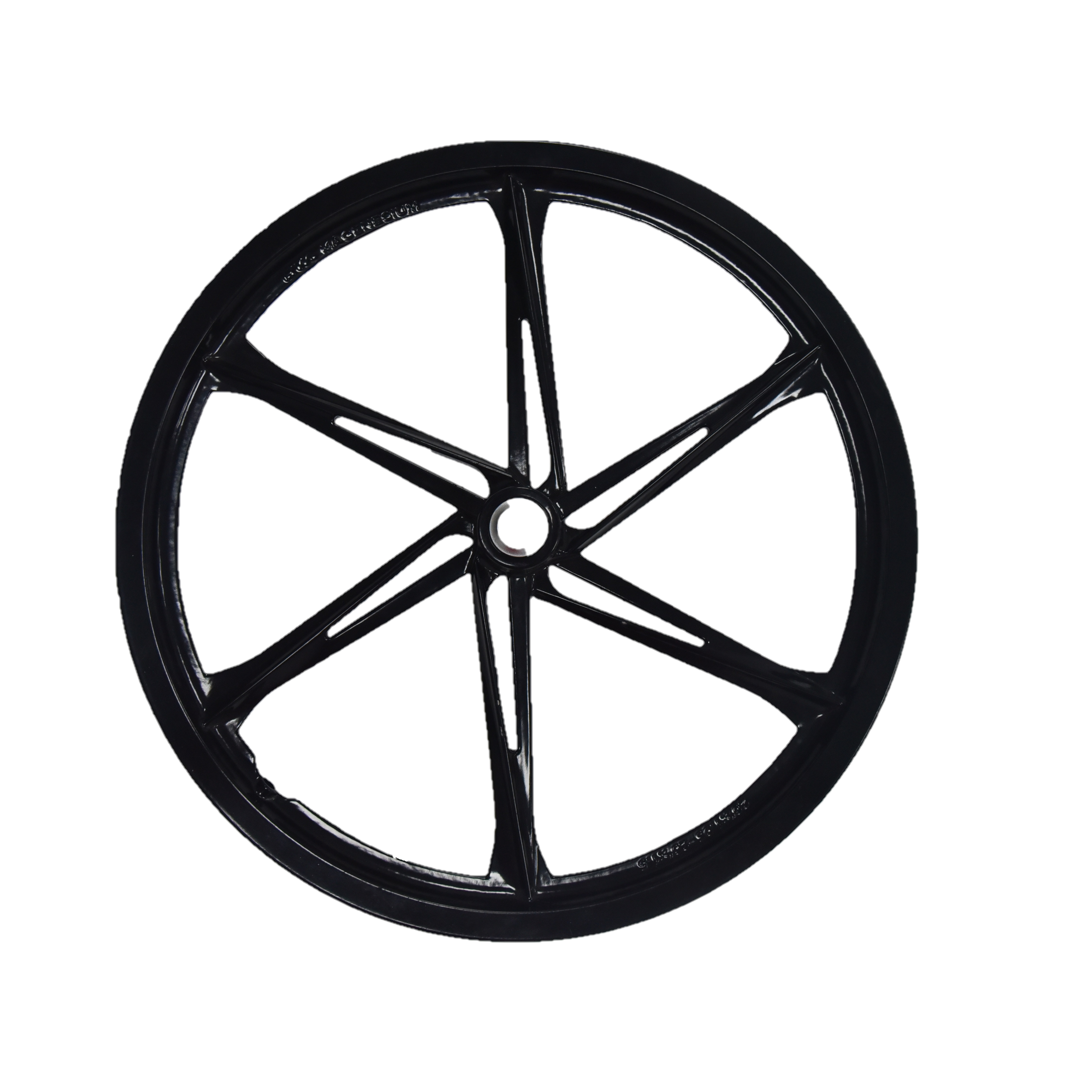Introduction
Aluminum is one of the most widely used metals in various industries due to its exceptional properties. Its lightweight, high strength, corrosion resistance, and excellent thermal and electrical conductivity make it a preferred choice for the manufacturing of a wide range of products. One of the most common methods of shaping aluminum into intricate designs is through casting. This article aims to explore the versatility of casting aluminum parts and its applications in different industries.
Casting Process: Basics and Benefits
Casting is a manufacturing process where molten metal is poured into a mold to obtain the desired shape. Aluminum casting involves the use of aluminum alloys that can be easily melted and poured into the molds. The molds can be made of various materials such as sand, plaster, or metal, depending on the complexity of the part.
The casting process offers several benefits for aluminum parts. Firstly, it allows for the production of complex shapes with high precision. Intricate designs that would be impossible or costly to achieve through other manufacturing methods can be easily cast using aluminum. Secondly, casting allows for the production of large quantities of parts in a relatively short period. This makes it a cost-effective method for mass production. Lastly, aluminum casting provides excellent surface finish and dimensional accuracy, ensuring the high quality of the final product.
Automotive Industry: Lightweight and High Performance
The automotive industry is one of the largest consumers of aluminum casting parts. The lightweight nature of aluminum makes it an ideal choice for reducing the overall weight of vehicles, leading to improved fuel efficiency and lower emissions. Engine blocks, cylinder heads, pistons, and transmission cases are some of the crucial components in automobiles that are often cast using aluminum alloys. The versatility of aluminum casting allows for the production of complex shapes and intricate cooling passages, contributing to the overall performance of the vehicle.
Aerospace Industry: Strength and Durability
In the aerospace industry, where safety and reliability are of utmost importance, aluminum casting plays a significant role. Aircraft components such as turbine blades, engine housings, and structural parts require materials that are both strong and lightweight. Aluminum casting provides the perfect combination of strength and durability, making it an ideal choice for these critical applications. The ability to cast intricate designs and complex geometries ensures the optimal performance of these parts in extreme conditions.
Construction Industry: Corrosion Resistance and Aesthetics
Aluminum casting finds its applications in the construction industry as well. Aluminum alloys possess excellent corrosion resistance, which makes them suitable for outdoor structures and architectural elements. Window frames, curtain walls, and decorative panels are often made using aluminum casting to provide both durability and aesthetics. The ability to cast intricate designs allows architects and designers to create visually appealing structures that are also functional and long-lasting.

Electronics Industry: Thermal and Electrical Conductivity
The electronics industry also benefits from the versatility of aluminum casting. Aluminum’s high thermal conductivity allows for efficient heat dissipation, making it ideal for heat sinks and electronic enclosures. Additionally, its excellent electrical conductivity makes it a preferred choice for components such as connectors and housings. The ability to cast intricate designs and integrate cooling channels enhances the overall performance and reliability of electronic devices.
Conclusion
Aluminum casting is a versatile method for shaping aluminum parts with precision and complexity. Its lightweight, high strength, corrosion resistance, and excellent thermal and electrical conductivity make it an ideal choice for various industries. From automotive and aerospace to construction and electronics, the applications of aluminum casting are vast and diverse. Its ability to produce intricate designs and complex geometries ensures the optimal performance and durability of the final products. As industries continue to advance, the versatility of aluminum casting will play an increasingly significant role in shaping the future of manufacturing.
-

- Tvornički prilagođeni Kina Bmx bicikli cestovni sport dječji bicikl 12 16 18 20 inča bicikl Mtb za djecu 6-10 godina
-

- OEM die-casted parts& components
-

- Električni bicikl od legure magnezija 12 inča integrirani kotač 36v10ah električni moped
-

- Kućište motora za električno vozilo za livenje pod pritiskom od legure magnezija
-

- Točak bicikla za livnice od legure magnezijuma sa CNC obradom i završnom obradom
-

- Thixomolding parts & components cell phone middle board processed

 0086-750-5616188
0086-750-5616188 +86 13392089688
+86 13392089688 sales@zhongmei-tech.com
sales@zhongmei-tech.com







